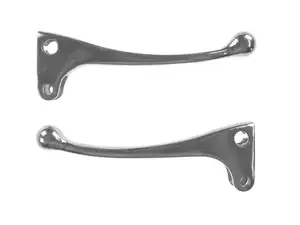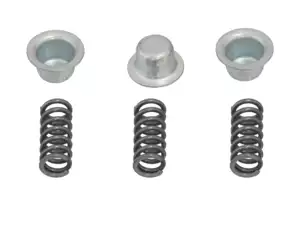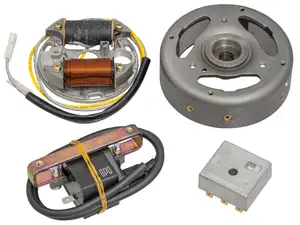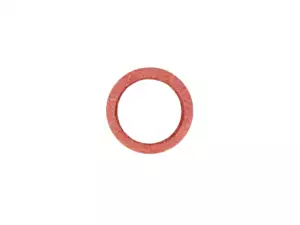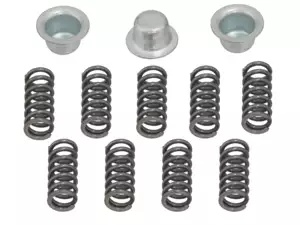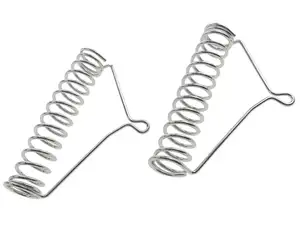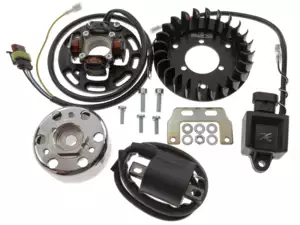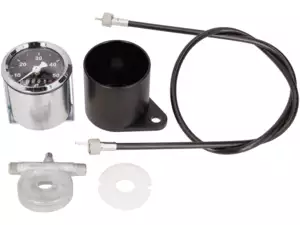SACHS
Sachs and its indestructible 2-strokes

Anyone who loves mopeds will also appreciate the services of the almost indestructible Sachs 503 engine. This version of the legendary Sachs 50, produced exclusively for Switzerland, powered and still powers numerous mopeds from various manufacturers. Of course, the manufacturer and former global corporation has also given the world other beautiful daughters, such as the original Saxonette moped or the cult Hercules Sachs moped, but the opus magnum is definitely this particularly robust and low-maintenance engine.
| Seat |  |
| Status | |
| Foundation | 1895 |

Bicycle and rolling bearing specialist becomes world-famous motor manufacturer
As with many renowned moped manufacturers, the Schweinfurt-based engine manufacturer's origins lie in the production of accessories for bicycles. In 1895, a good 40 years before the manufacturer's first 2-stroke engine was launched on the market, Präcisions-Kugellagerwerke Fichtel & Sachs produced bearings and bicycle hubs. A modest 70 hubs left the factory every day. Nobody could have guessed that this small manufacturing operation, which was located in a simple one-storey residential building, would one day mature into a genuine specialist for 2-stroke engines of world renown. The company's development gained momentum when the inventor and company founder Ernst Sachs developed the Torpedo freewheel hub for bicycles. A great success, as the particularly low-maintenance bicycle rear wheel hub became a real bestseller. Spurred on by its success and equipped with fresh capital from the proceeds of marketing the Torpedo freewheel hub, numerous other patents, innovations and new developments in the field of roller bearings and bicycle hubs followed. Even the First World War and the Great Depression only temporarily slowed the company's rapid growth.
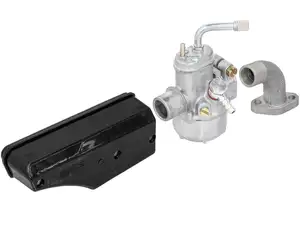
swiing® ingenious 15mm tuning set carburetor HG short | Sachs 503
Manufacturer: swiing® ingenious parts · Camouflaged: Yes · Component group Carburetor: Carburetor complete · Carburetor type: SRE · Nominal diameter: 15 mm · Ø Internal connection: 20 mm · Ø Inside entrance: 15 mm · Ø Output inside: 15 mm · Ø Air filter connection: 20 mm · Ø fuel hose connection: 6 mm · Choke control: Hand choke · Nozzle thread: M3.5x0.6 (standard thread) · Nozzle size: 62 · Mounting type: Flange · Mounting type: Plug connection clamped · Hole spacing inlet: 32 mm · Clamping screw torque (max.): 4 N/m · Area of application: Tuning
188,20 EUR
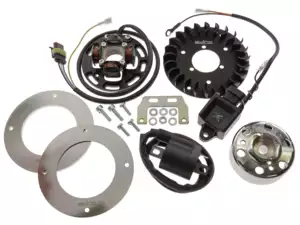
HPI racing ignition set 12V with light 60W | Puch X30 Velux / Sachs 503 / Zündapp Belmondo
Manufacturer: HPI · Manufacturer: swiing® ingenious parts · Tension: 12 V · Performance: 60 W · Direction of rotation: left · Direction of rotation: right · Ø mounting plate: 90 mm · Ø cable: 7 mm · Area of application: Tuning
441,10 EUR
Page 1 of 198
Entry into the 2-stroke business
The sale of the rolling bearing division to Svenska Kullagerfabriken (SKF) was a historic move that injected a lot of fresh capital into the company's coffers. Money that Ernst Sachs invested to a large extent in the research and development of accessory components for the automotive industry and small engines. A few years later, this decision would bear rich fruit and establish the reputation of the Schweinfurt-based manufacturer in the field of 2-stroke engines. The German company had recognised the signs of the times. The bicycle as a means of transport for the masses had not become obsolete, but the future of mobility in the 1930s demanded motorisation.
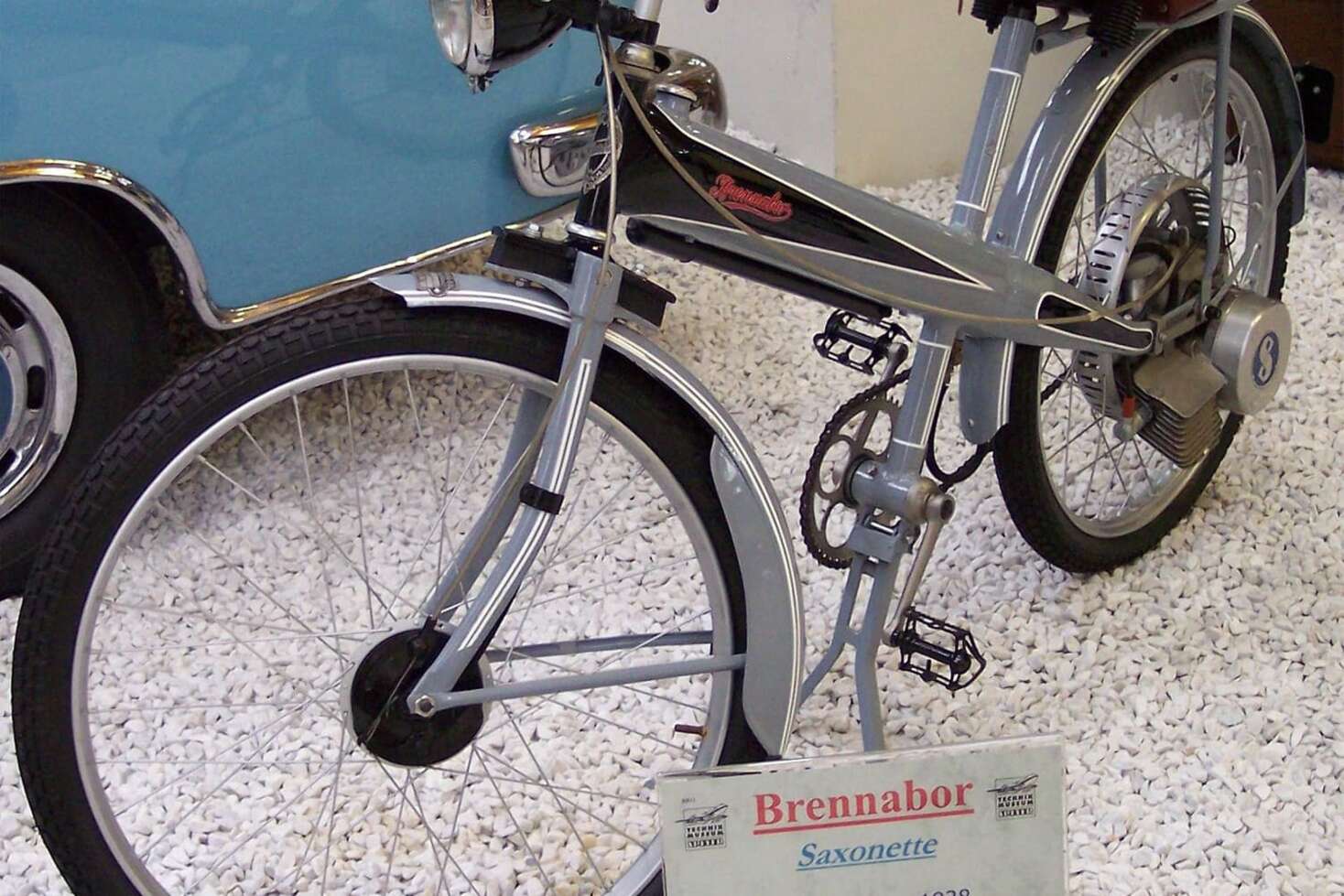
The original Saxonette moped
The Schweinfurt-based company's answer was the Saxonette, a two-stroke, nose-piston engine with a displacement of 60 cm³ and an output of 1.2 hp, which could be installed in the rear wheel hub of bicycles. Bicycles equipped with this 2-stroke wheel hub engine were already travelling at a remarkable 25-30 km/h. However, the engine was particularly impressive due to its reliability. Overall, the concept of the engine for light motorbikes was a complete success and enjoyed strong demand. In the 1930s, up to 5000 units of the wheel hub engine left the Schweinfurt factory every year, but the unit was also built under licence by Victoria or Wanderer. Durability, low-maintenance operation and robustness were the hallmarks that characterised this little masterpiece of engineering. It was also these characteristics that became a genuine trademark of the stationary and mobile small and 2-stroke engines from the Schweinfurt manufacturer in the years that followed. The reputation of the indestructible and unbreakable Sachs engines was born, and it hardly mattered what powered the units. In addition to the Saxonette two-stroke engine, the company also developed motorbike and boat engines as well as stationary power units for industrial plants during this time.
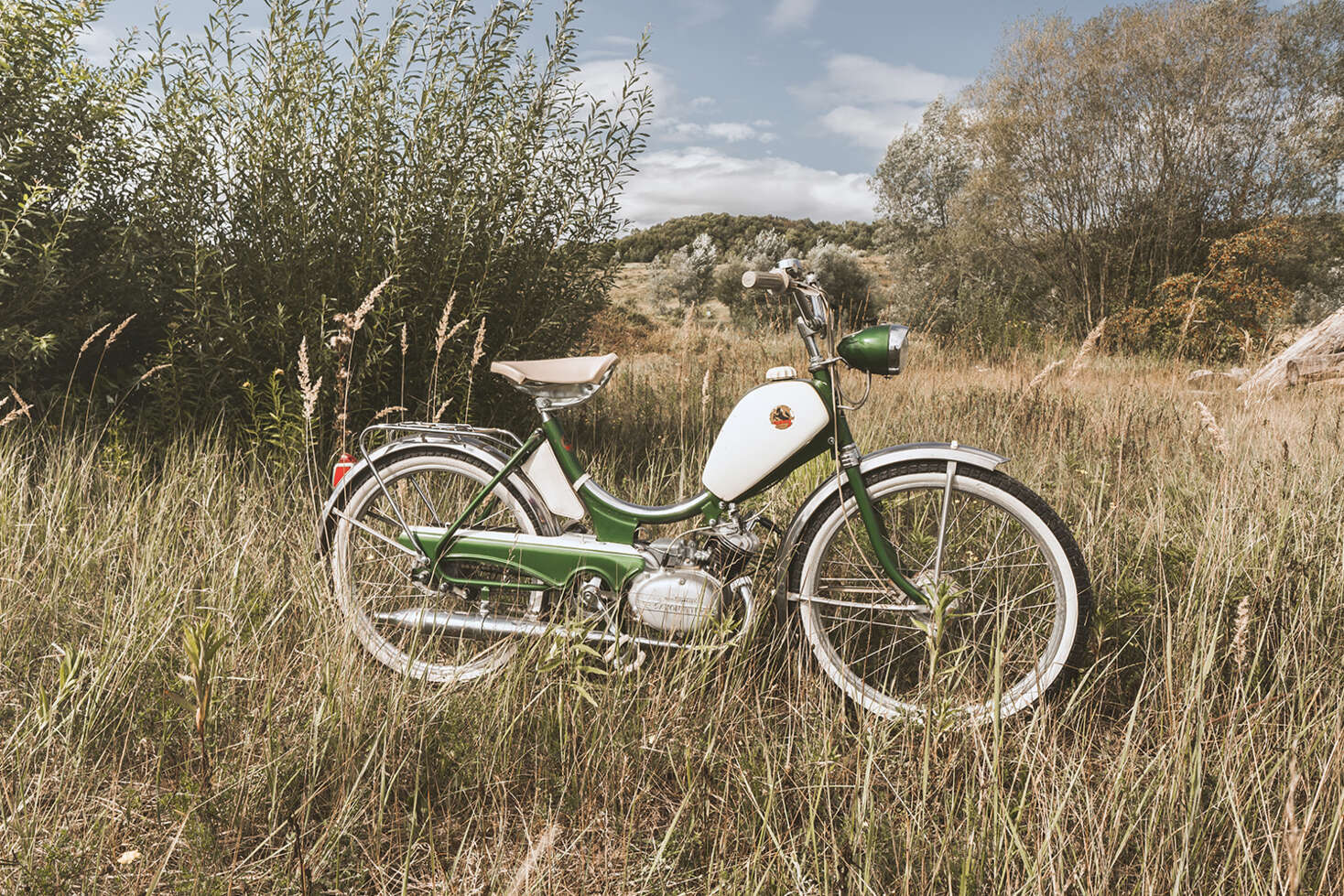
Der Sachs 50 – das Triebwerk des goldenen Töffli-Zeitalters
Nach dem Ende des Zweiten Weltkrieges untermauerte der Hersteller diesen Ruf weiter. Die Produktpalette wurde mit zahlreichen Neuentwicklungen von Aggregaten mit einem Hubraum bis 50 cm³ ergänzt. Besonders berühmt wurde der Sachs 50, der in unterschiedlichen Versionen in zahlreichen Töfflis verbaut wurde. Zahlreiche Hersteller im In- und Ausland setzten auf die Motoren aus Schweinfurt. Aus diesem Grund bürgerten sich für viele Mofas Doppelnamen ein. Neben dem Fahrzeughersteller wurde der Motorhersteller im selben Atemzug genannt. So erklären sich die Typenbezeichnungen wie Rixe-Sachs-Töffli.
Speziell und exklusiv für die Schweiz wurde die Version Sachs 503 entwickelt, die viele Jahre serienmässig in den Pony-Mofas der Schweizer Töfflischmiede Amsler sowie in den ALPA-Hödis des eidgenössischen Herstellers Stähli verbaut wurde. Der 503-Mofamotor war sowohl in einer gebläsegekühlten Version, also auch in einer noch robusteren fahrwindgekühlten Ausführung zu haben. Er leistete in der handgeschalteten Variante 0,8 PS bei 3000 U/min. Die Automatik-Modelle AAL, ABL, AB, AC und ADV waren etwas flotter und lieferten 1,2 PS bei 3800 U/min.
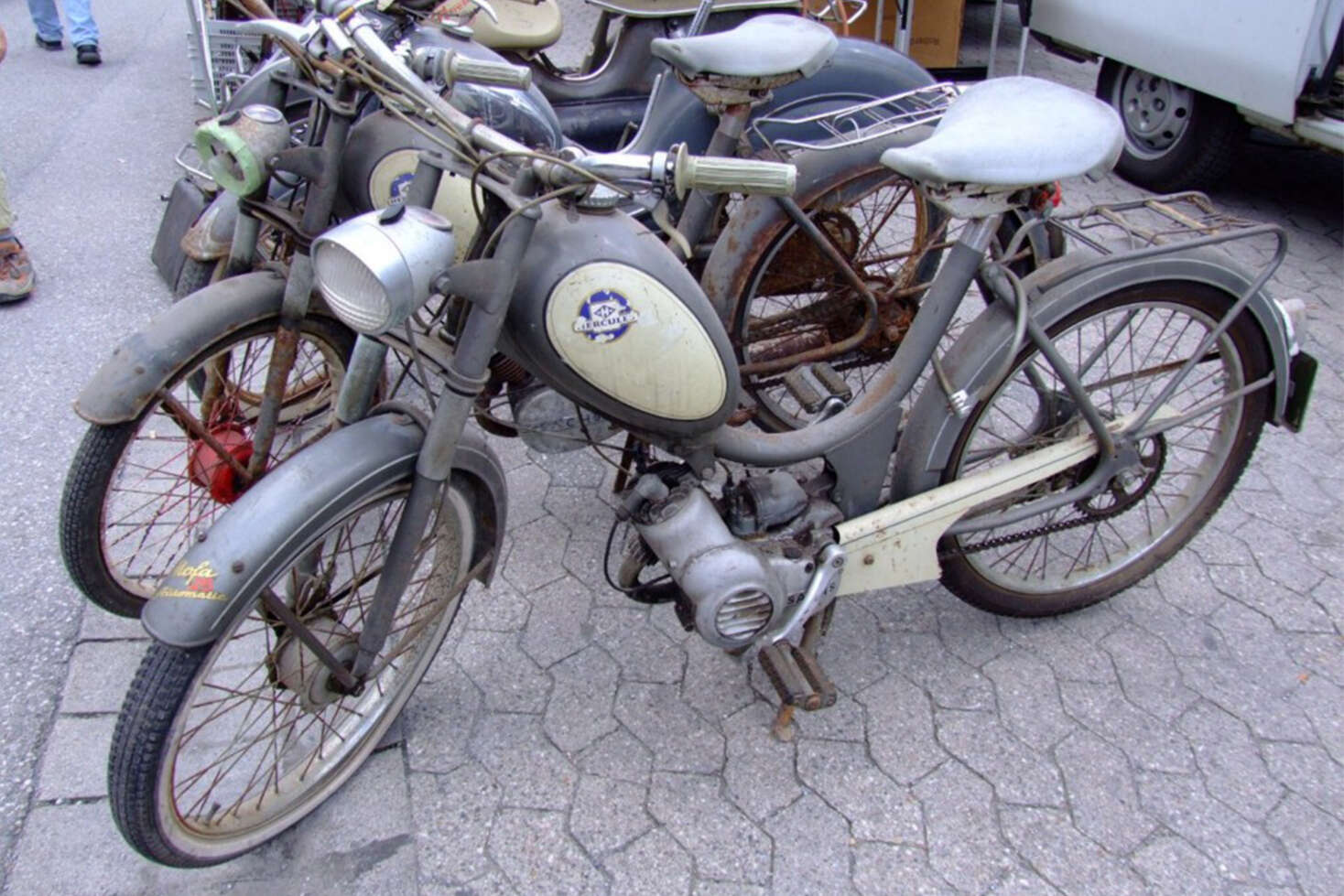
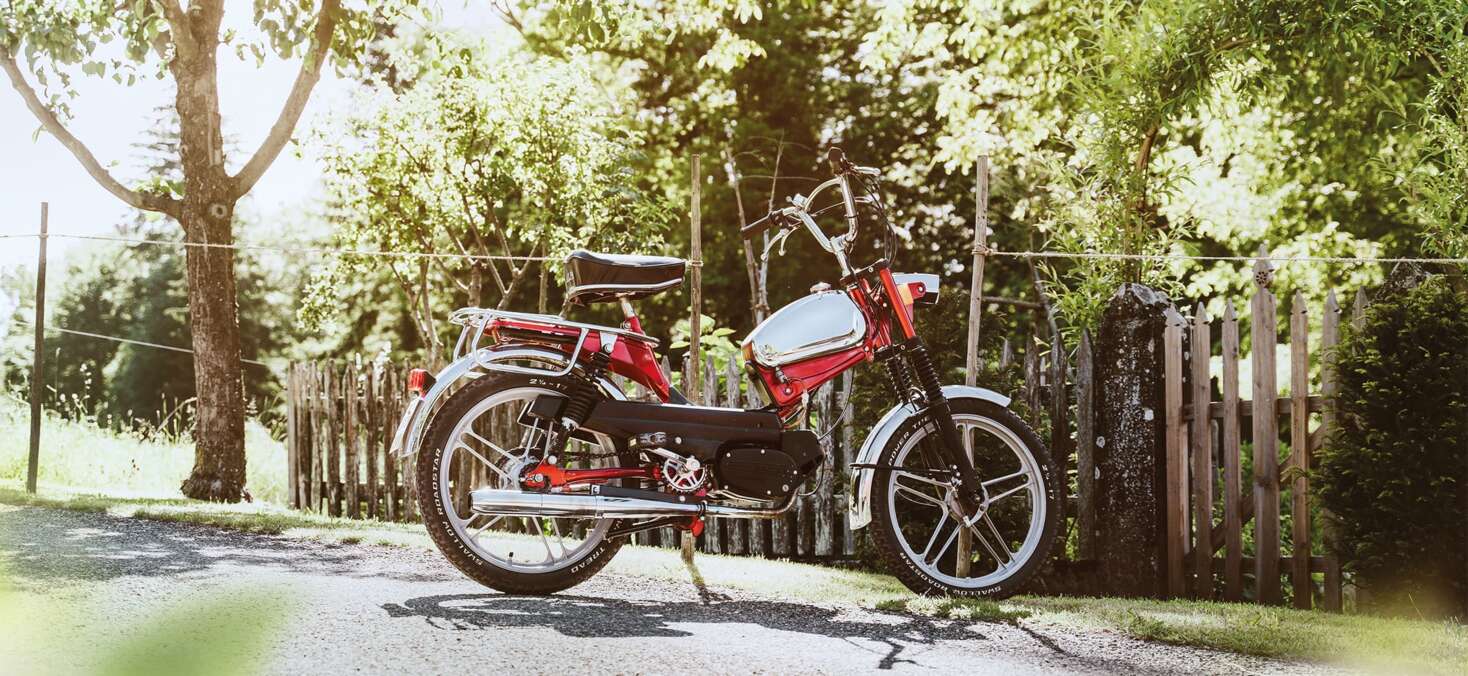
A huge two-wheeler empire is born
It is a historic stroke of luck that the renowned and traditional Swiss moped makers were able to resist the Schweinfurt company's hunger for expansion. Fichtel & Sachs had a huge appetite for two-wheeler manufacturers in those years. In the post-war years, the company acquired majority shareholdings in numerous renowned German moped and vehicle manufacturers. The takeover was kept secret for a long time; the purchase of the long-established moped manufacturer Hercules was handled via straw men and only officially announced in 1965.
Partly because the Hercules mopeds had already been equipped with engines from Schweinfurt at the factory and the two companies cooperated closely, it was possible to conceal the takeover for a long time. When a golden age for mopeds was dawning in the mid-1960s and the moped boom was already making itself felt through the sharp rise in demand for mopeds, the group also swallowed up Zweirad-Union, which also built the legendary Victoria mopeds and DKW mopeds, among others. It was not only due to the reliability of the small engines produced by the Schweinfurt-based company that the majority of the moped fleet was equipped with a Sachs engine until the 1980s; the German manufacturer's expansive corporate policy also played a part in this. Nevertheless, the small powerhouse has confirmed its reliability to this day in thousands of mopeds that are still on the road with this engine.
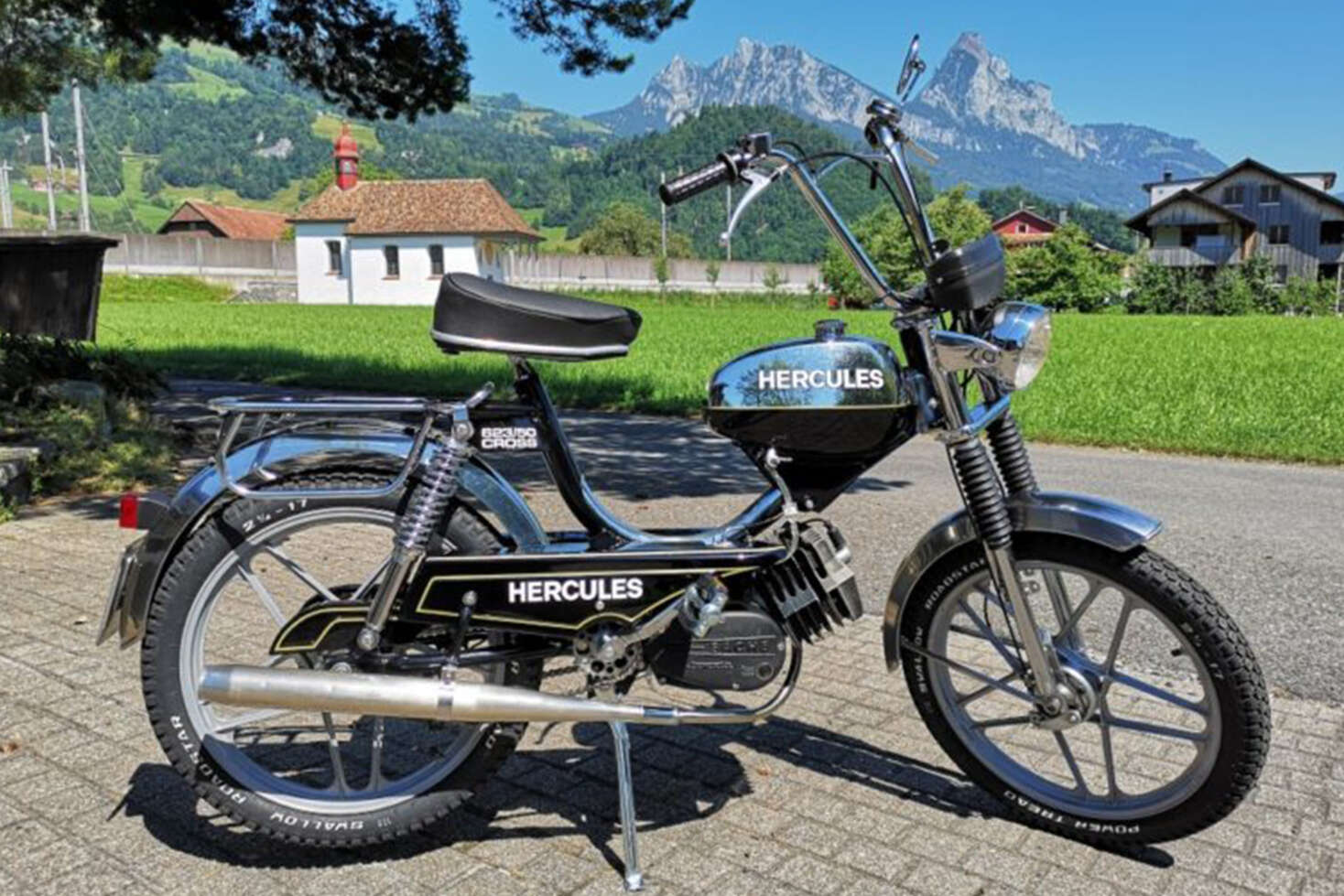
Has the 503 engine long been history?
The manufacturer Fichtel & Sachs was itself the subject of company takeovers and mergers in the 1990s. The former Schweinfurt engine manufacturer is actually still active in some areas today, although the company is now owned by ZF Friedrichshafen. Unfortunately, the 503 engine is long gone. In 1996, the production of all small engines with the S logo was discontinued. Fortunately, however, many of the engines are still running many years after the final production stop. This is due not only to the legendary reliability of the indestructible moped engine, but also to the fact that many moped enthusiasts look after and maintain their 503-powered scooters with exemplary care and passion.
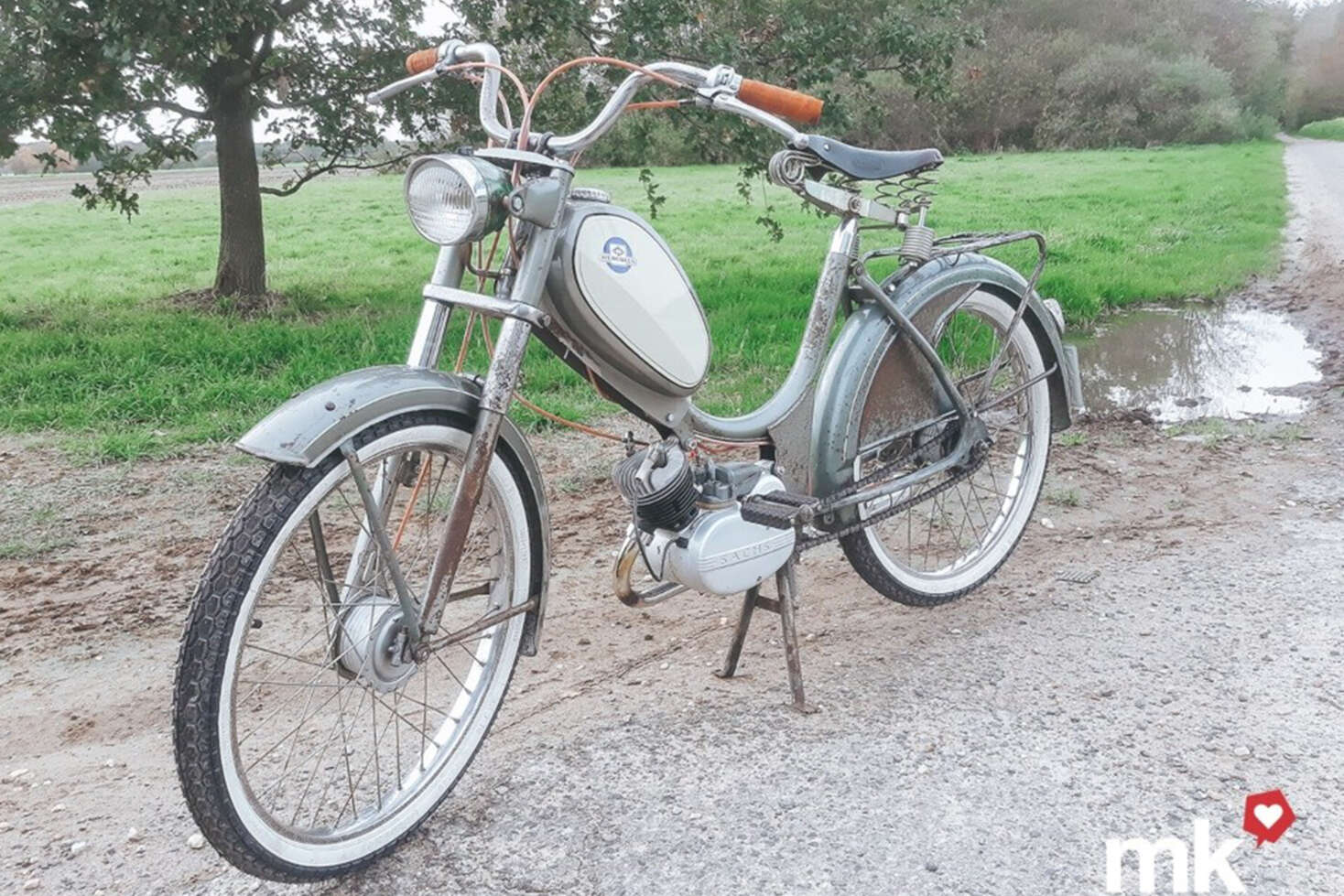
Popular SACHS topics
Our favorite manufacturers
